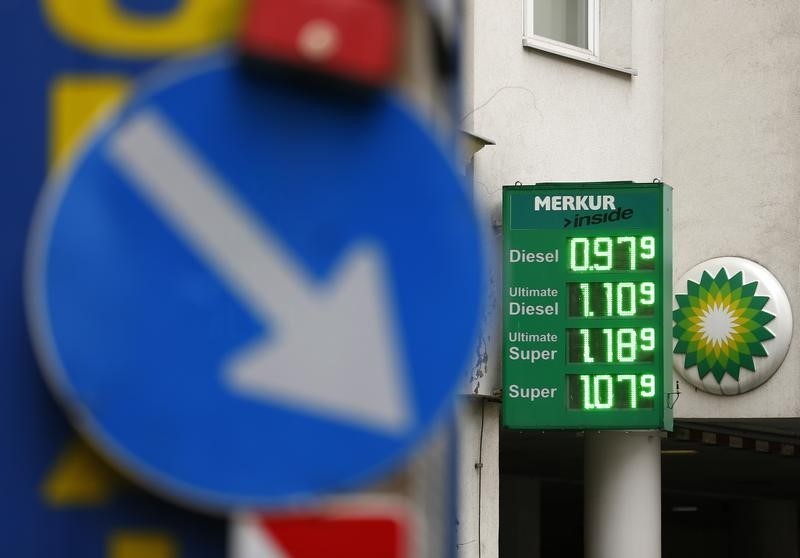Oracle stock falls after report reveals thin margins in AI cloud business
Investing.com -- BP PLC (LON:BP) (NYSE:BP) said on Friday that it expects lower upstream production in the first quarter, citing previously announced asset sales in Egypt and Trinidad, while its net debt rose sharply.
The company's shares fell more than 2% in London trading.
The oil giant, which is undergoing a strategic overhaul that includes a renewed focus on oil and divestments from low-carbon projects, said gas and low-carbon energy production fell quarter-on-quarter.
The decline in total upstream output was primarily due to the disposals in Egypt and Trinidad completed at the end of last year, which reduced production by around 90,000 barrels of oil equivalent per day.
BP reported a $4 billion increase in net debt over the quarter, attributing it to seasonal inventory impacts, staff bonus payouts, and payments linked to low-carbon assets classified as held for sale.
The company said it expects most of the increase to reverse. Net debt stood at $23 billion at the end of 2024.
Oil production is expected to have been slightly higher during the quarter, although overall earnings from the division are forecasted to remain steady. The company said this was partly due to pricing delays related to its operations in the Gulf of Mexico and the UAE.
UBS analysts downgraded BP shares to Neutral from Buy after the release of the Q1 update.
The analysts said the next steps for BP, including lowering its net debt and replenishment of the reserves base "were always going to take longer to achieve, but the level of financial uncertainty in the market makes delivery harder in our view, especially as it relates to bp's ability to grow earnings and sell assets."
UBS also lowered its price target on the stock to 400p from 525p.
Separately, Jefferies analysts believe the update "should drive consensus earnings down by 10-15%, mainly due to a higher-than-expected tax rate in the quarter."
They estimate a modest 2–5% downside risk to consensus EBIT of $4.724 billion and approximately 10% downside to consensus cash flow from operations (CFFO) before working capital, which stands at $6.643 billion.
Despite still-muted refining margins, BP said it anticipates a $100 million to $300 million earnings uplift from the segment. The average refining margin rose to $15.2 per barrel from $13.1 in the fourth quarter of 2024.
The update follows news last week that Chairman Helge Lund will step down as part of BP’s broader leadership and strategy transition, with plans to exit the company in 2026.
